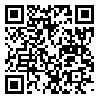Volume 17 - Supplement of 11th Annual Iranian Congress of Medical Ethics (Oral Presentation)
IJMEHM 2024, 17 - Supplement of 11th Annual Iranian Congress of Medical Ethics (Oral Presentation): 1-2 |
Back to browse issues page
Download citation:
BibTeX | RIS | EndNote | Medlars | ProCite | Reference Manager | RefWorks
Send citation to:



BibTeX | RIS | EndNote | Medlars | ProCite | Reference Manager | RefWorks
Send citation to:
Retracting or Discrediting Articles: Dos and Don'ts. IJMEHM 2024; 17 (S1) :1-2
URL: http://ijme.tums.ac.ir/article-1-6908-en.html
URL: http://ijme.tums.ac.ir/article-1-6908-en.html
Abstract: (21 Views)
As scientific output continues to grow and researchers strive to share their findings, the number of article retractions and cases of discreditation has also increased. Articles may be discredited for several reasons, including authors voluntarily admitting to errors in their work, discoveries of research misconduct, or concerns raised by reviewers or readers about the authenticity of the research. Retractions can harm public trust in science and have broader implications, such as damaging the reputation of the universities, research centers, and institutions associated with the retracted papers. This study considers the causes, contributing factors, and impacts of research discreditation, drawing on international guidelines and credible publications. It will examine the types of research misconduct and other issues that lead to article retractions. Additionally, the study will analyze cases of retracted articles authored by Iranian researchers using Retraction Watch. The Committee on Publication Ethics (COPE) identifies eight key reasons for journal editors to retract published research. According to COPE guidelines, retraction may occur when there is clear evidence of issues such as data or image manipulation that invalidate the findings. Other grounds for retraction include plagiarism, duplicate submission or publication without proper disclosure or permissions, inadequate oversight during data collection, violations of regulations like copyright laws, unethical research practices, flawed peer review processes, and undisclosed conflicts of interest. Additionally, other studies have pointed out factors contributing to article retraction, such as the pressure on researchers to publish, a lack of essential skills to conduct valid and reliable research, and inadequate training in research ethics. In the context of Iranian author retractions, common issues include authorship manipulation and plagiarism. With the growth of research and scientific production in universities and research centers, it's becoming increasingly important to address the issue of article retractions. By understanding the underlying causes, we can develop effective guidelines and oversight strategies while also providing researchers with the necessary training to prevent such issues in the future.
Type of Study: Ethics Congress |
Subject:
Congress of Ethics
Received: 2025/04/14 | Accepted: 2024/12/22 | Published: 2024/12/22
Received: 2025/04/14 | Accepted: 2024/12/22 | Published: 2024/12/22
| Rights and permissions | |
 |
This work is licensed under a Creative Commons Attribution-NonCommercial 4.0 International License. |



